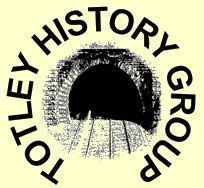The Totley Commune

UTOPIA – MORE FOR ALL
In 1516, Thomas More wrote Utopia and the world was turned upside down. Attempts to create paradise on earth abounded. It was followed by visions of a New Jerusalem and other revelations. The Diggers, the Quakers, the Shakers amongst others became fired up by prophecy and the hot breath of the charismatic. Crazy sun-baked schemes were hatched, crazy half-baked schemes were carried out - Moravian, Muggletonian, the Camisards, Behmenist and Swedenborgian - eccentric and bizarre, often futile, but never dull.
THE TOTLEY COLONY AND JOHN RUSKIN
In 1871, the visionary John Ruskin established the Guild of St. George as a means of transforming a declining and corrupt Britain into a place of beauty and justice. For Ruskin, art and life were to merge as one. His utopian vision involved working the land and encouraging traditional crafts. Ruskin was a hater of rapacious capitalism, modern technology and saved special invective for the railways.
An area of 13 acres was bought in Totley in 1877 by the Guild of St. George. The land was first used as allotments for a group of Sheffield workmen. Then, it was run as a land colony with around 12 members. Edward Carpenter describes the men as Communists and great talkers. The installation of William Harrison Riley as custodian or Master of the Totley communitarian experiment was not a popular move and signalled the beginning of the end. Numerous arguments and disagreements finally sank the colony, though the severe weather, poor soil, the lack of mechanisation and the labourers lack of agricultural expertise must have contributed to the failure of the scheme.
St George’s farm was taken over by Ruskin’s own head gardener at Brantwood (David Downs) who set up ‘Mickley Botanical Gardens’ to try and show the best methods of cultivating fruit-trees including strawberries, currants and gooseberries. When this venture failed even John Ruskin lost faith and could not wait to unload his 13 acres of poor land at Totley.
EDWARD CARPENTER AND THE TOTLEY COLONY
Edward Carpenter, who stayed at St. Georges farm for a few months in 1880, was philosophical about the failure of the Totley colony though appreciated the efforts of those involved. ‘They have kept the sacred fire alight through a long and dark night.’ Through the influence of Carpenter, George Pearson, a quarryman and a miner, was allowed to lease the land. In 1882, Carpenter moved to Millthorpe to set up a market gardening business of his own.
FROM KROPOTKIN BACK TO CRACKPOT
According to Marx, history repeats itself, the first time as tragedy, the second as farce. Only this time, the policy is not driven by the hot breath of the charismatic, but by the hot and greedy breath of the developer. Politicians speak of change, but never mention improvement. They spin about the need for sport in the community yet close down open spaces with aggressive and hostile fences. They wax lyrical about opportunity yet ignore the fact that social mobility has never been so poor. They speak of social harmony but never mention the crackpot policy of open borders and overcrowding. The ghost of John Ruskin haunts the landscape, repelled by the relentless cram and spread of urban ugliness and appalled by furtive plans to steal the Green Belt from under the noses of the people.
THE MAP BECOMES THE TERRITORY
On those 13 Totley acres, on those green and pleasant slopes, in summer meadows redolent of paradise, or when a pale winter moon rises above the distant moor, perhaps a crazy and glorious remnant of the vision of utopia can still be found. Overlooking those fields, it is almost possible to believe that the dream of heaven on earth is still alive and that the spirit of communality can be dug out of the stony ground of contemporary existence. As Oscar Wilde said ‘A map of the world that does not include Utopia is not even worth glancing at’. Perhaps, a New Jerusalem of mutual cooperation, beauty and social justice can still be achieved. Then, perhaps, nowhere will become somewhere.
Jill F. Solomon PhD
Cardiff Business School, Cardiff University
Andrew Hassall BSc (Econ)
writer of ‘Snakebreath’, ‘Bleak Edge’ (screenplay) and ‘Talking With Angels’
March 2008
